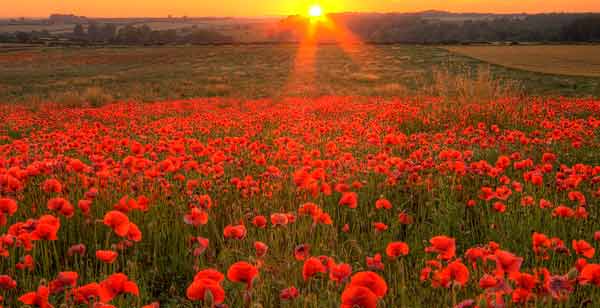Four embassies mark end of First World War
The British, Canadian, French and German Embassies will gather at the Balboa Union Church on Remembrance Sunday, November 11, to mark the 100th-anniversary signing of the Armistice which ended the bloodiest war in history on the 11th hour of the 11th day of the 11th-month of 1918.
![]() The gathering is open to all and will remember the dead of the conflict once euphemistically called The Great War, the Second World War and other conflicts wherever British, Commonwealth and Nato servicemen have fought, including Iraq and Afghanistan.
The gathering is open to all and will remember the dead of the conflict once euphemistically called The Great War, the Second World War and other conflicts wherever British, Commonwealth and Nato servicemen have fought, including Iraq and Afghanistan.
The ceremony starts at 11.45 a.m.
Some will be wearing artificial poppies, which are sold by the millions each year throughout the Commonwealth, to raise funds to provide assistance to military personnel and their families.
if you have watched BBC TV in recent weeks you will have seen that every presenter and visiting personality has sported a poppy.
[caption id="attachment_90679" align="alignleft" width="300"] Statue of Ian McCrae in Ottawa[/caption]
Statue of Ian McCrae in Ottawa[/caption]
The idea of using poppies, (originally made by disabled ex-servicemen) originated with Earl Haig and the British Legion and was sparked by a poem written by a Canadian military doctor, Lt- Colonel lan McCrae during the Battle of Ypres in 1915.
He died on the Western Front, but the words he wrote after the battle have been memorized by generations of young Canadians, many of whom went on to serve and die in other conflicts from WW II to Korea, and Afganistan
LEST WE FORGET
In Flanders Fields, the poppies blow
Between the crosses row on row,
That mark our place; and in the sky
The larks, still bravely singing, fly
Scarce heard amid the guns below.
We are the Dead. Short days ago
We lived, felt dawn, saw sunset glow,
Loved and were loved, and now we lie
In Flanders fields.
Take up our quarrel with the foe:
To you from failing hands we throw
The torch; be yours to hold it high.
If ye break faith with us who die
We shall not sleep, though poppies grow In Flanders fields.
Other lines traditionally recited on Remembrance Sunday come from Laurence Binyon’s Hymn for The Fallen
They shall grow not old, as we that are left grow old:
Age shall not weary them, nor the years condemn.
At the going down of the sun and in the morning
We will remember them.
The lines appear on war memorials and cenotaphs across the world
